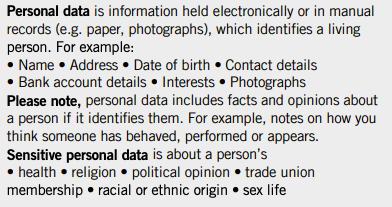Petitions have an important place in human history as the tool that has often been the only voice of marginalized people. They can be found across many cultures and regions throughout time, with their start dating back to Ancient Egypt, where slaves often tried to petition for better working conditions. The practice of petitioning has inevitably changed throughout history, most drastically in recent years with the proliferation of technology into all practices of life. We no longer write a bunch of hieroglyphs in papyrus, but we rather click on the link our friend shared on Facebook (most likely a Change.org petition) and fill in our information.
Quick and Easy! Yay, Right?!?
No.
Is this easy-peasy-lemon-squeezy way of signing petitions really an adequate process to digitalize such an important practice?
Or is it yet another opportunity for Data Giants to gather massive amounts of personal data to sell out?🤔
While the ease of signing a petition one wants to support with just one click sounds very efficient and appealing, Human history has proven over and over again that the most appealing way might not always be the safest way. I wanna bring back that petition your friend shared on Facebook earlier, because there we already find one of the bad guys:

In 2018, the Facebook-Cambridge Analytica scandal occurred, and to save you some research here’s a short summary: Millions of Facebook users had their personalized data taken without consent by Cambridge Analytica. This data was sold to political campaigns which allowed politicians to skew political advertising in their favour by relying on the supposedly ‘protected’ data of the users / citizens.
Now some might say, “Well, if they have my personal data, they can give me more advertising that I want which is a good thing, no?”
Yes, if the world were perfect, maybe a bit of personal data wouldn’t hurt anyone, but we don’t. Personal data can comprise a lot things, and when someone knows how you feel, they know what to say so you will listen.

The possibilities that emerge with these masses of data bring into play an important aspect when talking about Data Gathering, which is Data Protection, a key stone in safeguarding the Digital Rights of Individuals. As much as we catch up with everyday technology, if the same does not happen to our Legislative Procedures and Rights, we will be at the mercy of the highest bidder at some point. We will only be shown, what they want to show us (pretty Orwellian tbh).

But what can we do?
There aren’t a lot of ways for individuals to go against giant digital conglomerates, but there are individual practices that can contribute to a safer managing of our data:
- Inform yourself and others about the Digital Rights you currently have (example. GDPR)
- Research a company’s / webpage’s past with handling personal data before authorizing its usages
- Support Data Protection Movements (Voting for better Data Protection, Sharing Infographics on Cybersecurity, etc.
General rule of thumb for more information: Google stuff as if your life depended on it.
Also, if you have time to sign some petitions, please do so! 🙂


Indeed an interesting piece, the change.org petitions must’ve shown up on anyone’s social media feed once or twice. It’s good to be aware of the consequences of entering your data in on a petition website. Imagining that this potentially sensitive data might come in the hands of advertisers might be considered disturbing.
I’m interested as well on the site you left us with, https://issuesintheworld.carrd.co/ links to many various topics from around the world, those again link further to other petitions, some of which are from change.org. Don’t you think a site like this might make it harder to critically look at the petitions one is signing? Who actually made this website also seems unclear on itself?
Thank you for your insightful piece! It made me think more deeply about the online petition signing!
Very nice blog! I actually despise how change.org works, I always have to share the petition on a social platform before singing it, and I don’t want to do that which ultimately makes me lose my interest in signing the petition. I understand that it will help the petition receive more visibility but I also think that for every person that doesn’t share there are three that do, maybe because they want their ‘friends’ to think they care about stuff or maybe because they’re genuinely involved. Nevertheless, apart from my rant about change.org, I do indeed think this is a nice blog and could actually teach people some skills on how to stay protected online in a simple, engaging, and funny way.
Also, has a change.org. petition ever directly lead to a change?
Hey Kevin, great post! You summarize the issue in such a concise way, back up your claims and infuse humor, which makes it both insightful and fun to read. I also find it problematic that you sign petitions you’re not very passionate about, just because someone sent you a link on Facebook, and you end up not knowing if the petition actually led to any positive change. It’s a very passive form of “activism”… and like you said, have no idea what they’re doing with that data. Thanks for sharing this:)